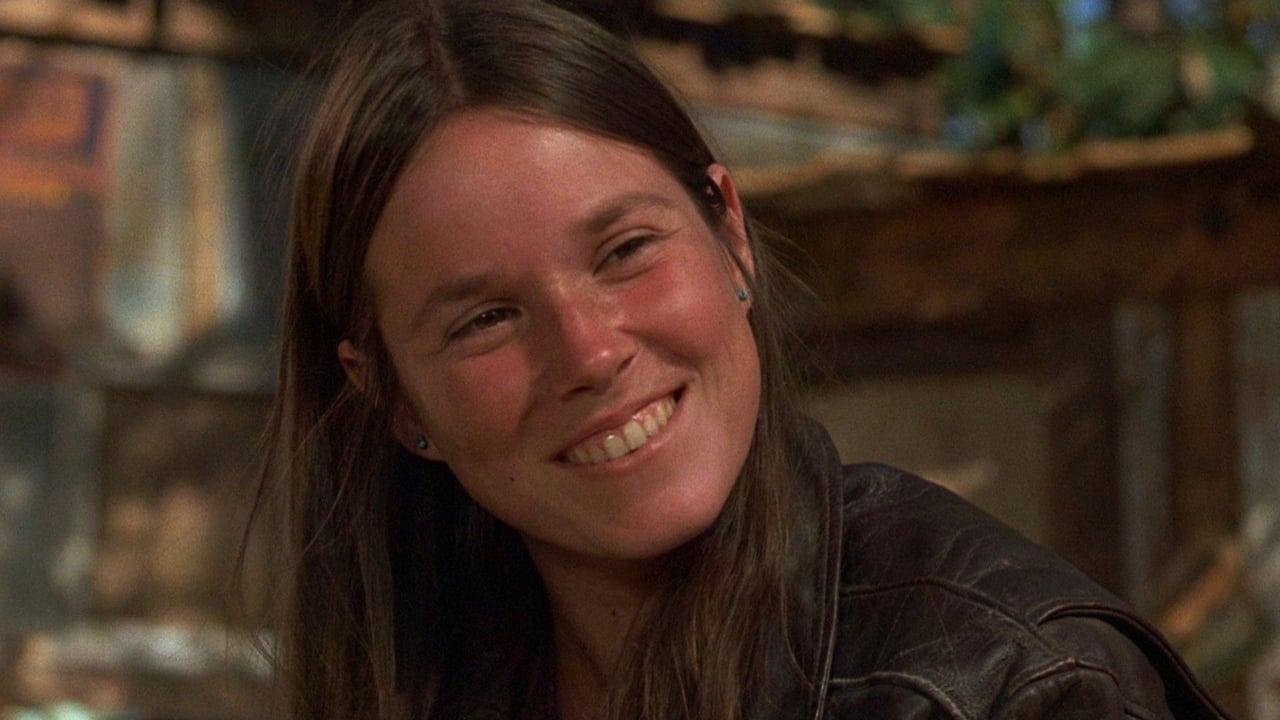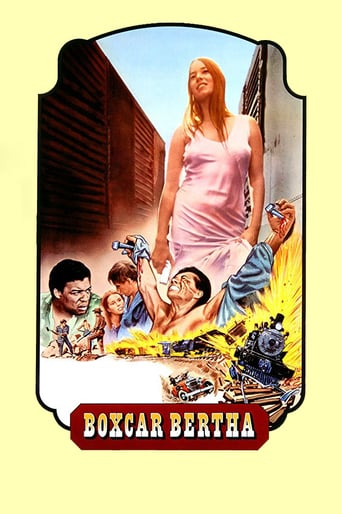

Fanciful, disturbing, and wildly original, it announces the arrival of a fresh, bold voice in American cinema.
... View MoreGreat example of an old-fashioned, pure-at-heart escapist event movie that doesn't pretend to be anything that it's not and has boat loads of fun being its own ludicrous self.
... View MoreThere are moments that feel comical, some horrific, and some downright inspiring but the tonal shifts hardly matter as the end results come to a film that's perfect for this time.
... View MoreGreat movie. Not sure what people expected but I found it highly entertaining.
... View MoreAfter working as an editor in the documentary "Woodstock", Scorsese was asked to make an exploitation film for Roger Corman, a known B-movie producer for the American International Picture.Set in the depression-era starring Barbara Hershey and David Carradine as the pair who led a small gang into a life of crime. It sometimes reminds us of the similar lovers/criminals-on-the-run classic five years ago when this film was released, Arthur Penn's "Bonnie and Clyde." Although it borrows some elements in similar films that preceded it, and was restricted by the nature of the film, still Scorsese made a way to imbued some of his style and energy and show us what he can do with the limited materials given to him.Shot in 24 days with little budget, "Boxcar Bertha" became Scorsese's training ground for making his future superior films – Scorsese once said that the tight scheduling of the film gave him the sense of discipline he needed.
... View MoreA typically cheap ($600,000 budget) and amateurish Roger Corman exploitation film, 'Boxcar Bertha' is largely significant as Martin Scorsese's first studio feature. The literary inspiration for the film is 'Sister of the Road: The Autobiography of Boxcar Bertha' "as told to Ben L. Reitman" (Macauley, 1937). Masquerading as an autobiography, 'Sister of the Road' is actually a novel. Boxcar Bertha never existed; she is an amalgam of several women—mostly Retta Toble (who married Joe Curran, legendary president of the National Maritime Union, in 1939). Reitman modeled Bertha and her cronies on people he had come to know in his tumultuous life as an anarchist, hobo, whorehouse doctor, birth control advocate, and one of Emma Goldman's lovers. The various incidents described in the book happened to Reitman himself or countless other hobos he met and conversed with over the years. To adapt Reitman's book to the screen, Corman tapped the services of John William and Joyce Hooper Corrington, a married screen writing duo who had penned Corman's previous film, 'The Red Baron' (1971). Their mandate was to fashion a thinly disguised remake of 'Bonnie & Clyde' in order to cash in on the rebellious-but-doomed-young-crooks-in-love motif that Arthur Penn's film had so successfully exploited a few years before. This involved discarding the actual contents of Reitman's book but retaining title, setting, and some characters for a vestige of Depression-era authenticity. Reitman's Boxcar Bertha had been involved in a shoplifting ring but Corman's Bertha (Barbara Hershey), her lover, 'Big' Bill Shelly (David Carradine), and two accomplices—Rake Brown (Barry Primus) and Von Morton (Bernie Casey)—become full-fledged outlaws bent on bringing down rapacious railroad baron H. Buckram Sartoris (John Carradine). In a bloody, apocalyptic ending, the gang's bid to kidnap Sartoris is foiled, Brown shot dead, and Shelly captured and nailed to the side of a boxcar in a way that obviously invokes Christ's crucifixion. Clumsy and cartoon-like in some spots, 'Boxcar Bertha' also exhibits flashes of cinematic brilliance: indications that 29-year-old Martin Scorsese had lots of potential. To this day Hershey and Carradine maintain that their sex scenes were quite real. DVD (2002).
... View MoreA little bit impressive, a little bit important because of its director and his subsequent works, "Boxcar Bertha" isn't much as good as it could be due to the forces of circumstances where director Martin Scorsese was simply making a film to Roger Corman, and not being an important part of the process by contributing as an author. If Marty was the author, the creative genius in the writing of this, it might had become an better project than it is. It's importance now lies that this is the movie that leads to the authorial and brilliant "Mean Streets" and the rest is history, and a great one. It goes to show the learning process Mr. Scorsese had to go through to finally make his mark in film history.It stars Barbara Hershey as the title role, a female train robber who joins the union leader Big Bill Shelly (David Carradine) on continuous crimes robbing trains seeking to fight against corrupt railroad establishment. The movie is loosely based on the book "Sister of the Road" a fictionalized account on Bertha Thompson written by Ben L. Reitman. Ordinarily fun like most exploitation films of the 1970's tended to be, "Boxcar Bertha" was a way of Scorsese learning how to film faster and economically. He goes far though. He was already displaying plenty of talent in orchestrating scenes, filming violent moments with a quite impeccable precision. Some of the scenes seem very dated but they can impress a little today (the final shootout was incredibly edited). And there's time to enjoy the fine performances of Hershey, Carradine and Barry Primus.Don't make mistakes, this is no "Goodfellas" or "Taxi Driver". Those are deeper in everything, quality materials and very reflexive. "Boxcar Bertha" doesn't go for the politics, the denounce of social issues (when it could be). Instead, we have an exploitation film with all of its natural characteristics: cheap productions with loads of sex and violence and rebel criminals fighting each other. It's quite hollow, weary if compared to other Scorsese's productions, and such comparisons are quite pointless but whatever. If let alone it can be considered a good movie. And it is a good one. 6/10
... View MoreBoxcar Bertha was based on the life of times of Bertha Thompson, during the depression era in the 1930s. After her pilot father is killed right before her eyes in a plane-crash, Bertha leaves the family farm, unable to support herself alone. Bertha takes to the road, and soon meets-up with Big Bill Shelly. Bill is a union organizer, who's determined to exact justice from corrupt railroad barons. Bertha and Bill fall in love, and travel together via hopping trains across the south. The two turn to criminal activities, to survive.Barbara Hershey gives a light-hearted, yet also poignant performance as Bertha. David Carradine conveys the conviction and passion, evident in Big Bill Shelly. His on-screen chemistry with Barbara Hershey, is palpable. Bernie Casey gives a strong, if understated performance as Bill's partner-in-crime, Von Morton. The morality angle of this film, like many made in the 70s, is ambiguous. The viewer knows that the characters clearly commit criminal acts. Yet there's also a sense of righteousness in their lawlessness, due to their quest to overthrow the cruel railroad men.This is one of the more interesting 70s nostalgia films, and one of the very few to revolve around a strong female character. It is a bit too slow in spots, and could've used more exciting get-a-way scenes. But it makes-up for these minor flaws, by having characters with more emotional depth, than the usual crime drama. Boxcar Bertha is a fine film, that works very well overall.
... View More